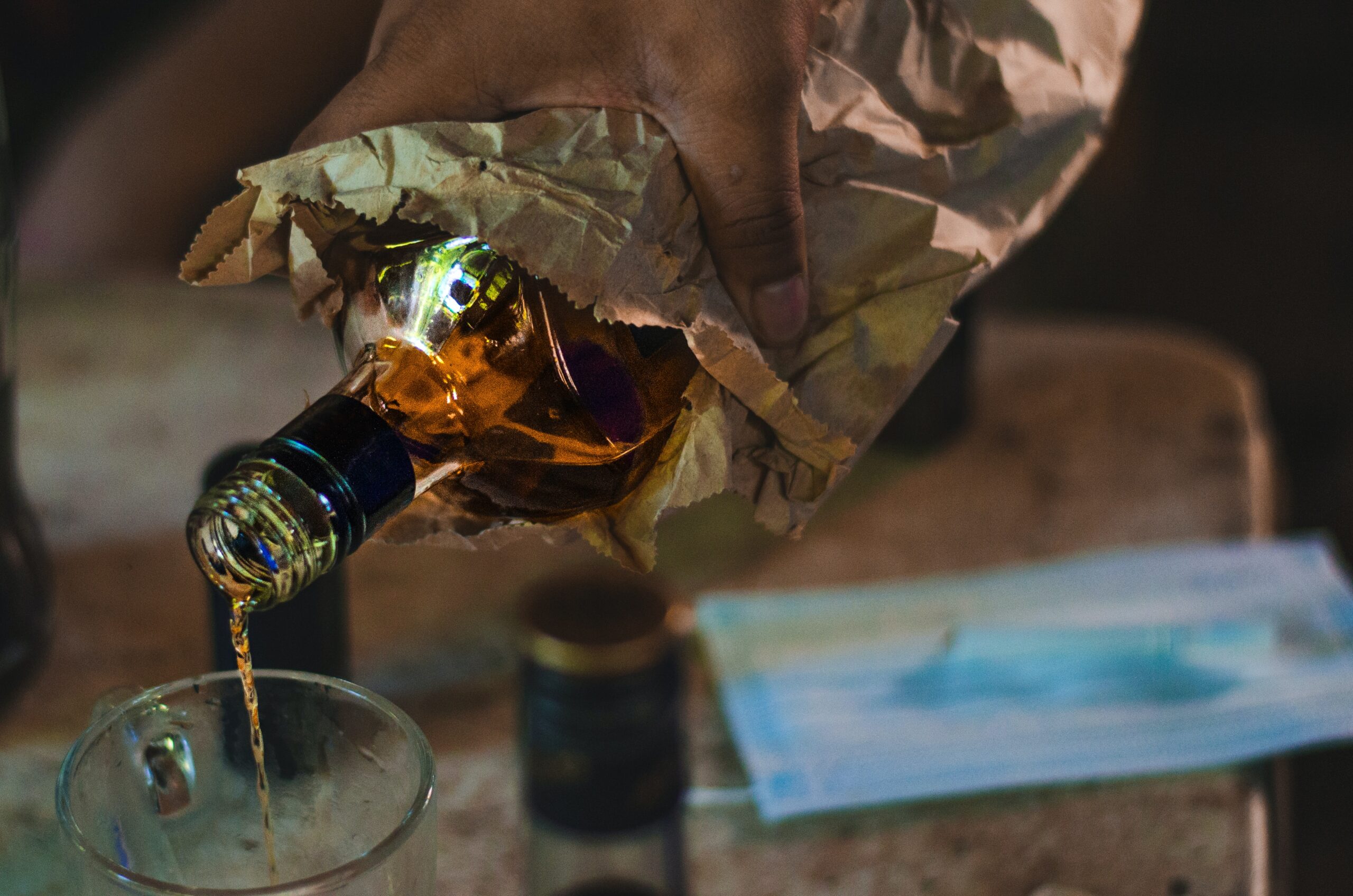I will start by saying that outpatient rehab at Better Days was not my first time at this proverbial rodeo.
Like many of us who have been dedicated, almost “professional grade substance abuse users”, learning how to slip in and out of different inpatient and outpatient treatment programs had become a sort of skill for me.
Don’t get me wrong…at the time, I didn’t see it as some sick game. Every time I entered into another inpatient or outpatient treatment program I went with the hope that this time, something would change.
This time, I would finally see why a life of sobriety was not only feasible for me, but also a life that I could actually enjoy.
And every time…I found myself back to where I started from.
Then, after a particularly intensive inpatient program, I thought maybe I’d finally gotten a handle on my alcohol and drug abuse.
I thought I had beat it once and for all and wasn’t going back to my old ways.
And I was right. I didn’t go back to those ways.
Where I went was even worse.

Understanding the Timeline to Abusive Substance Use
Sure, I’d heard all the facts and research and theories and thoughts behind drug and alcohol addiction.
Thanks to my multiple stints in either inpatient or intensive outpatient treatment programs, I knew that:
- Approximately 20 million Americans aged 12 and older have a substance use disorder and that number is increasing in our post-Covid world. (National Survey on Drug Use and Health, 2019)
- Alcohol is the most commonly abused substance in the United States and also the most widely accepted in social environments of all types. (National Institute on Alcohol Abuse and Alcoholism)
- Over 130 people die each day from opioid-related drug abuse in the United States. (National Institute on Drug Abuse)
- Substance abuse disorders can be caused by genetics as well as a person’s environmental situation and behavioral factors. (National Institute on Drug Abuse)
- Substance abuse can increase a person’s risk of mental health disorders, including depression and anxiety and is also often used to self-medicate when a person already has mental health issues. (National Institute on Drug Abuse)
- Nearly 90% of all American adults who meet the criteria for a substance use disorder had begun their drug or alcohol use before the age of 18. (National Center on Addiction and Substance Abuse)
- Despite the increased access to alcohol and drug rehab treatment programs, over 95% of people who need specialized substance abuse treatment, such as medically assisted treatment, will actually never receive it. (National Survey on Drug Use and Health, 2019)
- Substance abuse can cause a huge number of health related issues and complications, such as liver disease, cirrhosis and hepatitis. Substance abuse can – and often does – lead to death. (Source: National Institute on Alcohol Abuse and Alcoholism)
- Alcohol and drug abuse can lead to various types of cancer, including liver, breast, colon, and lung cancer. (Source: National Cancer Institute)
- Long-term drug use can lead to changes in the brain that make it difficult for a person to control their behavior, make sound decisions, and feel pleasure without using drugs. Dementia has also been seen to be more prevalent in those who are heavy drug and alcohol users. (Source: National Institute on Drug Abuse)
- Drug abuse can damage the lungs and cause respiratory problems such as chronic bronchitis and lung cancer. (Source: Centers for Disease Control and Prevention)
- Alcohol and drug abuse can increase the risk of heart disease, stroke, and high blood pressure. (Source: National Institute on Alcohol Abuse and Alcoholism)
- Drug and alcohol abuse can damage relationships with friends and family, leading to social isolation and loneliness. (Source: Substance Abuse and Mental Health Services Administration)
- Substance abuse can increase the risk of accidents, injuries, and deaths, whether from impaired driving, falls, or other accidents. (Source: National Institute on Drug Abuse)
- Drug and alcohol abuse can lead to financial problems, including debt, bankruptcy, and job loss. (Source: National Council on Alcoholism and Drug Dependence)
Yes, I had spent hours in inpatient and intensive outpatient programs (IOP Program) learning all about drug or alcohol addiction and the ways in which my relationship with both of them was slowly killing me.
But knowing these facts and actually allowing them to scare me enough to make me finally see my substance use disorders for what they really were ended up being two very different things.

The Turning Point
It wasn’t until a few years ago when I finally realized everything that my substance use disorders had really taken away from me.
After years of taking drug and alcohol rehab half seriously, I found myself out of work, in the middle of an unpleasant divorce, and cut off from most of my family and closest friends.
My co-workers, my wife, and even my children had become fed up with me.
They told me that they weren’t willing to “stand by and watch me kill myself” anymore.
They said that if I didn’t finally find the inpatient or outpatient rehab facility that I could truly commit to and take seriously, then they no longer wanted me in their lives.
Of course, I thought they were joking. (We had been to this rodeo before, remember?)
But as the weeks turned into months and I found myself with nowhere to turn, no person to listen to my sob story, no friends to go and have “just a few” with me, I started realizing where I was.
I had hit rock bottom. There was nowhere else to go.
Through Another Person’s Eyes: Outpatient Rehab at Better Days
It was a fellow addict that first told me about Better Days outpatient rehab program.
He and I had been in and out of some of the same inpatient and outpatient treatment programs in the past.
Every time we saw each other, we’d re-commit to getting clean once and for all. Then we’d usually fall out of touch, only to both resurface yet again at a different drug or alcohol treatment center, slightly embarrassed but also convinced that “this time was going to be different.”
You see, this is the thing about substance use disorders. They are sneakier than you are. They know how to lay dormant for months, years even, until you least expect them to rise up again.
They are incredibly patient. They believe they can outsmart and outwait even the most committed addicts.
But this time when I saw this person, he looked different. His eyes were clear and when he talked about his experience at Better Days, his voice was light but full of confidence and hope.
He told me that he had attended one of the Better Days intensive outpatient treatment programs and had a level of success he had never experienced before.
Before leaving to go meet his family for dinner, he looked me deep in the eyes and said the words that changed everything I’d thought about inpatient and outpatient programs until then.
“Better Days helped me to finally understand that I could beat this thing. And that there was a treatment facility that would truly walk with me every step of the way.”
Finally Finding My Freedom: How Better Days Led the Way
Discovering the right outpatient addiction treatment center for me was a longer journey than I care to admit.
But admit it I will because I know there are thousands of you out there that – like me – are ready to give up.
You’ve convinced yourself that inpatient treatment or even outpatient treatment is never going to work for you.
You believe that the idea of trying to attend treatment one more time isn’t going to make one bit of difference and that you will just end up again back where you started…or even worse.
But Better Days is different. Better days gave me what I had almost given up hope of ever achieving. A life free of drugs and alcohol use.
How did they do it?
Better Days uses a unique approach to outpatient addiction treatment, which balances freedom and structure in powerful ways. Here’s a little insight into their treatment philosophy:
By using what is known as a proprietary treatment methodology called Reality-Based Recovery, which is a model that uses the lived experiences of those who have struggled with substance abuse to heal them.
For example, a patient might mention to their therapist or medical support staff that they’ve struggled with maintaining their sobriety in the past when presented with a certain situation or event.
Working together with the right support groups, therapy styles, and clinical support, the team at Better Days will analyze why it makes you feel compelled to use drugs or alcohol in these various situations and what you can work to do differently to avoid giving in to those temptations the next time they strike.
At Better Days, it is well understood that the temptation to use drugs and/or alcohol is everywhere in today’s society.
It’s this outpatient treatment facility’s belief that a person suffering from a substance abuse disorder can and should learn how to deal with the various triggers that different circumstances prevent while in a supervised setting.
This type of approach can greatly benefit an addict who has tried to quit relying on drugs and/or alcohol in the past but has never been given the whole set of tools to understand why they do what they do and how to begin to break that cycle once and for all.
Just quitting is not enough. At Better Days, you will learn to ask yourself the question why.
Why do I use alcohol and drugs in certain situations?
What is the alcohol and/or drug doing for me at that moment?
And, perhaps the most important question of all…
How can I finally change my relationship with drugs and alcohol once and for all?

Are You Ready for a Different Outpatient Alcohol and Drug Addiction Treatment Plan?
If you are tired of trying different inpatient and/or outpatient treatment methods and are ready to find a facility that will be your last one, then come see what Better Days has to offer you.
Located in the picturesque setting of Anaheim, California the facility is a state-of-the-art treatment center that is fully equipped to provide you with everything you need for your stay.
And whether you choose to enroll in an outpatient treatment program or an inpatient program, you will be relieved to see that you’ve finally found a place that is going to feel like home.
There is healing on the other side of addiction. You just have to find the right way.
Give Better Days a call today.


